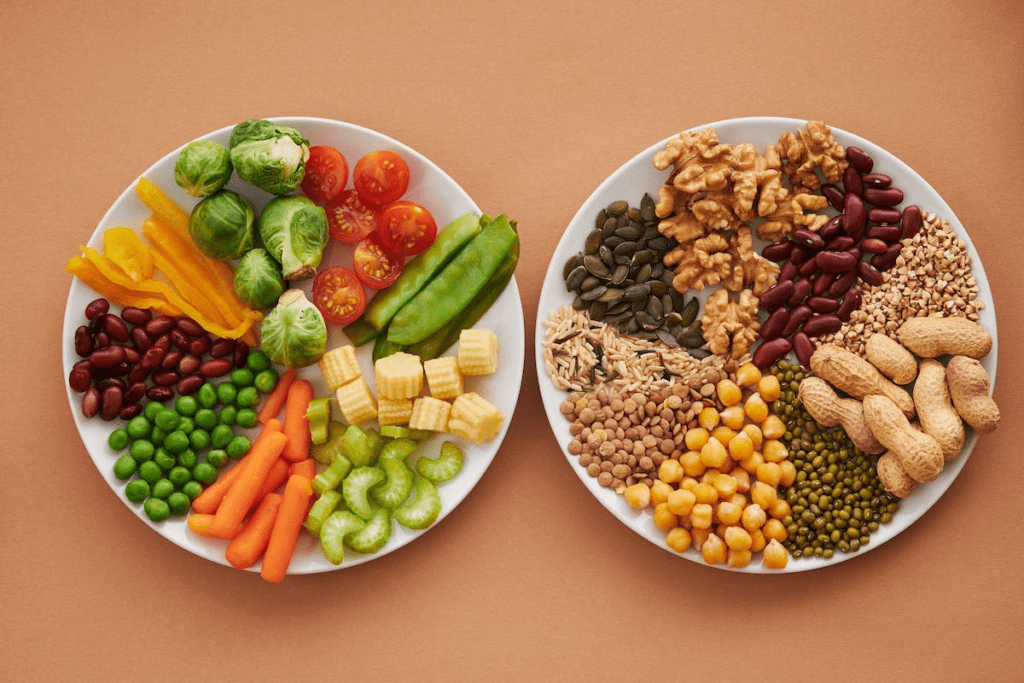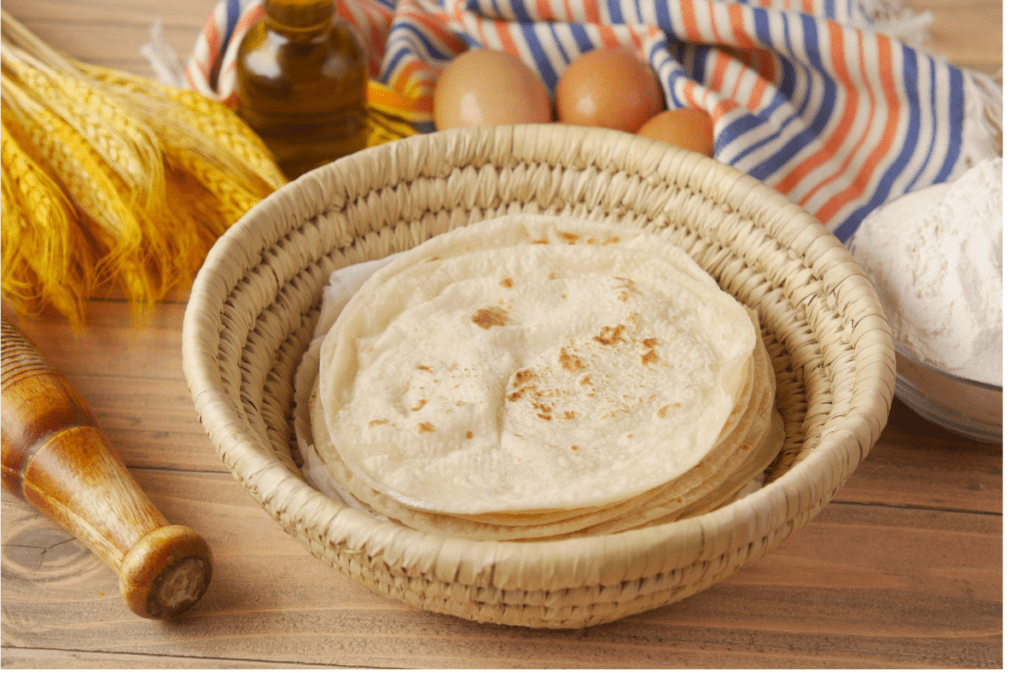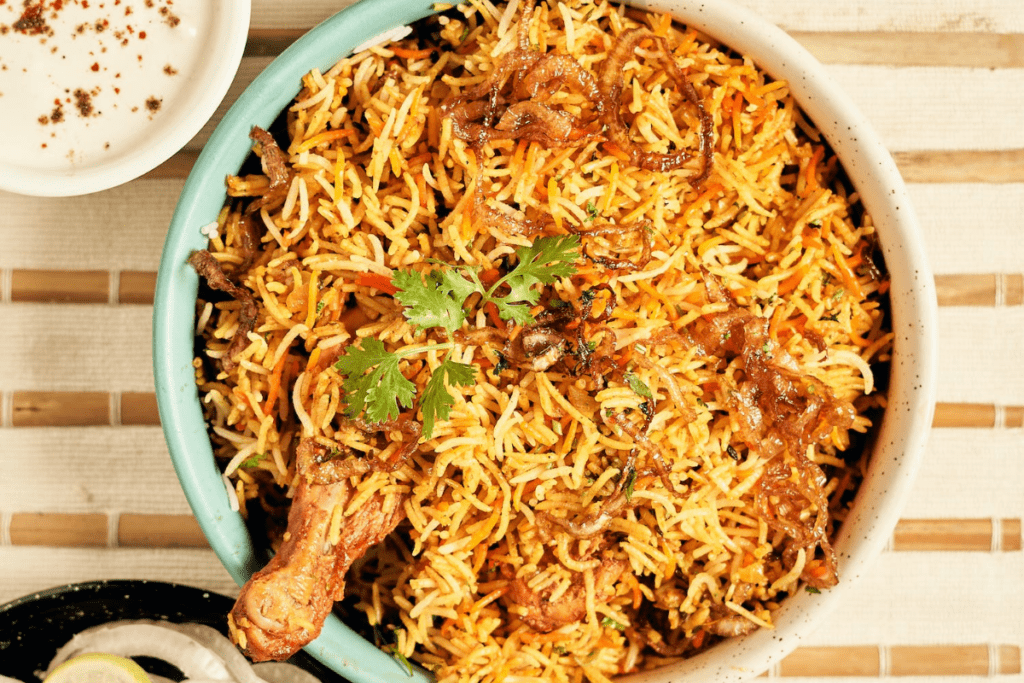Introduction
India, with its rich culinary traditions and diverse cultures, has always been a treasure trove of delicious food. However, in recent years, a new culinary trend has been gaining popularity and making waves not only in the Indian subcontinent but around the world as well: the plant-based diet. A plant-based diet involves consuming foods primarily derived from plants, such as fruits, vegetables, grains, legumes, nuts, and seeds, while minimizing or completely eliminating animal products. In this article, we’ll explore the benefits of adopting a plant-based diet in India, both for your health and for the planet.

Health Benefits of a Plant-Based Diet
Heart Health:
Reduced Risk of Heart Disease: A plant-based diet is often lower in saturated fat and cholesterol, which can help lower the risk of heart disease. High-fiber foods like fruits, vegetables, whole grains, and legumes can also improve cholesterol levels and blood pressure.
Weight Management:
Weight Loss and Maintenance: Plant-based diets tend to be lower in calorie density, making it easier for individuals to lose and maintain a healthy weight. The high fiber content in plant foods promotes satiety and reduces overeating.

Improved Blood Sugar Control:
Lower Risk of Type 2 Diabetes: A plant-based diet can help regulate blood sugar levels and reduce the risk of developing type 2 diabetes. Whole grains, legumes, and vegetables have a lower glycemic index, which helps stabilize blood glucose.
Cancer Prevention:
Reduced Cancer Risk: Some studies suggest that a plant-based diet may be associated with a lower risk of certain cancers, particularly colorectal, breast, and prostate cancers. Antioxidants and phytochemicals found in plant foods play a role in cancer prevention.
Digestive Health:
Improved Digestion: The fiber in plant-based foods promotes healthy digestion and regular bowel movements, reducing the risk of constipation and other digestive issues.

Lower Risk of Chronic Diseases:
Reduced Risk of Hypertension: A plant-based diet can help lower blood pressure and reduce the risk of hypertension, which is a significant risk factor for heart disease and stroke.
Bone Health:
Better Bone Health: While plant-based diets may lack some bone-building nutrients found in dairy, they can still support bone health. Calcium-fortified plant-based milk, leafy greens, and nuts provide calcium, and weight-bearing exercises are beneficial for bone strength.
Improved Skin Health:
Clearer Skin: A diet rich in fruits and vegetables provides essential vitamins and antioxidants that can contribute to clearer, healthier skin.
Longevity:
Increased Lifespan: Some research suggests that a plant-based diet may contribute to a longer lifespan due to its positive impact on overall health and reduced risk of chronic diseases.
Gut Health:
Balanced Gut Microbiome: Plant-based diets can promote a diverse and healthy gut microbiome, which is associated with better digestion, immune function, and overall well-being.
Environmental Benefits
Reduced Environmental Impact: Plant-based diets have a lower environmental footprint compared to diets rich in animal products. By choosing plant-based options, you can help reduce greenhouse gas emissions and conserve resources.

Plant-Based Foods in Indian Cuisine
Indian cuisine offers a wide variety of delicious plant-based foods, making it an excellent choice for vegetarians and vegans. Here are some popular plant-based foods commonly found in Indian cuisine:
Dal:Lentils,or dal, are a common ingredient in Indian food.They are used to prepare cuisines like Sambar, Tadka Dal, and Dal Makhani. A fantastic source of plant-based protein is lentils.
Vegetable Curries: Indian curries are often made with a rich blend of spices and vegetables. Some famous examples include Bhindi Masala (okra curry), Baingan Bharta (roasted eggplant curry), and Aloo Gobi (potato and cauliflower curry).
Chana Masala: This is a popular chickpea curry made with a tomato-based sauce and a mix of spices. It’s both flavorful and protein-rich.
Roti/Chapati: These unleavened flatbreads are made from whole wheat flour and are a staple in Indian meals. They are typically served with various vegetable curries.

Pulao and Biryani: These aromatic rice dishes are often prepared with vegetables, herbs, and spices. Vegetable Biryani and Pulao are commonly enjoyed by vegetarians.

Idli and dosa: The fermented rice and lentil batter used to make these South Indian specialities.They come with sambar and coconut chutney on the side.
Paneer Dishes: Paneer is a fresh Indian cheese used in many dishes like Palak Paneer (spinach and paneer curry) and Paneer Tikka.
Vegetable Samosas: These savory pastries are filled with spiced potatoes, peas, and sometimes other vegetables. They are deep-fried to crispy perfection.
Street Food: Indian street food offers a variety of plant-based options, such as Aloo Tikki (potato patties), Chole Bhature (fried bread with spicy chickpeas), and Pani Puri (hollow, crispy balls filled with spicy tamarind water and potatoes).
Sweets: Many Indian sweets are vegan, such as Jalebi (deep-fried syrup-soaked dessert), Gulab Jamun (fried milk solids soaked in sugar syrup), and Coconut Ladoo (coconut and condensed milk balls).

Snacks: There are numerous vegan snacks like Pakoras (deep-fried fritters), Masala Peanuts, and Bhel Puri (a spicy and tangy snack mix).
Indian cuisine offers a wide range of plant-based options that cater to various tastes and preferences. It’s known for its use of aromatic spices, which add depth and flavor to these vegetarian and vegan dishes.
Challenges and Tips
Cultural and Social Challenges: In a society where meat-based dishes are often central to cultural and social gatherings, transitioning to a plant-based diet may present challenges. It’s important to communicate your dietary choices with family and friends and explore plant-based versions of traditional dishes.
Balanced Nutrition: To ensure you’re meeting all your nutritional needs, consider consulting a registered dietitian who specializes in plant-based nutrition. They can help you plan a well-balanced diet that meets your specific requirements.
Plant-Based Diet India: vedio tutorial:
https://youtu.be/A1aHrunOSbI?si=ezhdpdAXpDULcrR_
Conclusion
A plant-based diet in India is not only good for your health but also for the planet. With a wealth of plant-based foods and culinary traditions, India offers a diverse and delicious array of options to explore. By making the switch to a plant-based diet, you can nourish your body and contribute to a more sustainable future for our planet.
FAQs
What is a plant-based Indian diet?
A plant-based Indian diet primarily focuses on consuming whole, unprocessed plant foods such as fruits, vegetables, legumes, grains, nuts, and seeds. It excludes or minimizes the consumption of animal products like meat, dairy, and eggs.
What is a 100% plant-based diet?
A 100% plant-based diet, also known as a vegan diet, excludes all animal products and by-products. It focuses on consuming only plant foods, such as fruits, vegetables, grains, legumes, nuts, and seeds.
What are 5 plant-based foods?
Some delicious plant-based foods include fruits like apples, bananas, and oranges, as well as vegetables like spinach, broccoli, and carrots. Legumes such as lentils and chickpeas are also great options, along with grains like quinoa and brown rice.
Is rice allowed on a plant-based diet?
Yes, rice is allowed on a plant-based diet! It is a staple food in many plant-based cuisines and provides carbohydrates and energy. Just make sure to choose whole grain varieties like brown rice for added nutritional benefits.
Are potatoes plant-based?
Yes, potatoes are plant-based! They are a starchy vegetable that is commonly enjoyed in many plant-based diets. They can be prepared in various delicious ways, like baked, mashed, or roasted.
